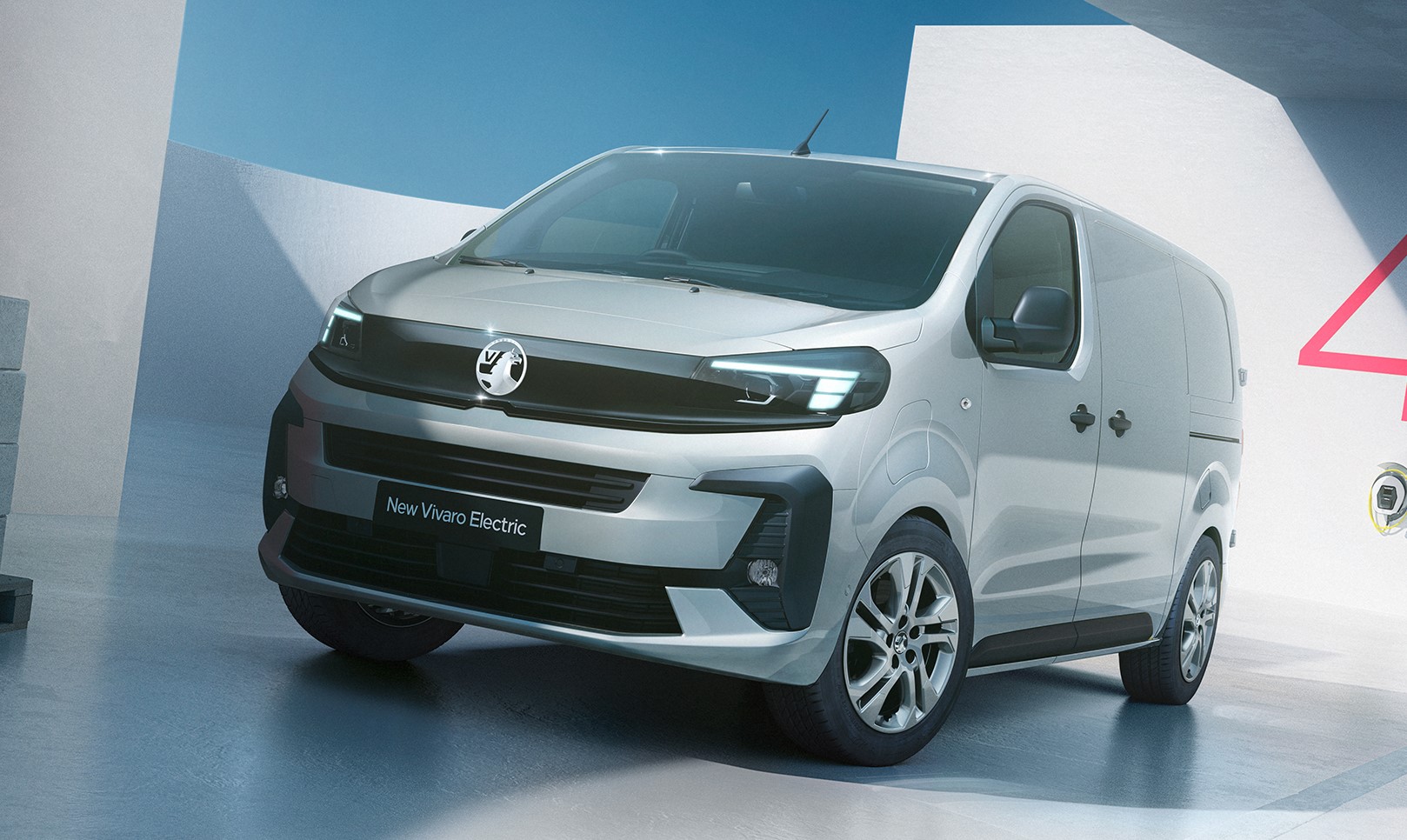By Andy Picton, chief commercial vehicle editor at Glass’s
The UK’s light commercial vehicle (LCV) market declined 8.5% in July, with 24,689 new vehicles hitting the road for the first time, compared to 26,990 units 12 months ago.
A total of 202,309 vehicles have been registered year-to-date, a 2.7% increase on 196,916 units registered last year and the best first seven months since 2019 (222,280 units).
With registrations of entry-level models falling over the years in favour of those with higher specification levels, data shows that up to 40% are now for models with additional specification such as air conditioning, parking sensors, power-folding wing mirrors and reversing cameras.
Duty of care and driver welfare are cited as the major reasons for this shift, with the latest vehicles offering a safer and more comfortable driver experience.
The pickup sector attracts a different kind of buyer, who typically demands a vehicle with a higher ‘car-like’ specification. These models dominate, with base models attracting only 5-10% of registrations.
Demand dipped across most sectors in July, with registrations of pickups and vans >2.5-3.5t gross vehicle weight (GVW) falling 5.1% and 12% respectively.
The latter’s 16,814 registrations represented 68.1% of all units registered in the month but was the sector’s third successive month of decline.
Vans between 2.0 and 2.5 tonnes GVW fell by 8.4% to 4,036 units.
The only success saw vans in the Below 2.0 tonne sector record an 117.6% increase (929 units).
Ford once again registered more LCVs than any other manufacturer in July, accounting for nearly 52.7% of all vehicles in the top ten.
The Transit Custom claimed top spot with the Transit in second. The Ranger pickup was fifth and the all-new Transit Courier was in tenth registering 708 units.
The run out of the current Transporter 6.1 has meant there are deals to be had enabling the model to finish third, with the Mercedes-Benz Sprinter claiming 4th.
Registrations from the Stellantis ProOne stable made up 19.6% of top-ten total, with the Vauxhall Vivaro in 6th (1,225 units), the Vauxhall Combo in 8th (844 units) and the Citroen Berlingo in 9th (735 units). The Renault Trafic claimed 7th place with 1,178 units.
Top five LCV registrations
|
YTD 2024 |
July 2024 |
July 2023 |
|||
|
Ford Transit Custom |
25,857 |
Ford Transit Custom |
3,718 |
Ford Transit |
2,598 |
|
Ford Transit |
17,727 |
Ford Transit |
1,744 |
Ford Transit Custom |
2,594 |
|
Ford Ranger |
11,683 |
Volkswagen Transporter |
1,413 |
Vauxhall Vivaro |
1,974 |
|
Mercedes-Benz Sprinter |
10,473 |
Mercedes-Benz Sprinter |
1,354 |
Volkswagen Transporter |
1,738 |
|
Vauxhall Vivaro |
9,925 |
Ford Ranger |
1,345 |
Renault Trafic |
1,239 |
Electric van registrations
Despite there being 28 different models for fleets to choose from, BEV registrations were down 13.7% on June 2024 and 8.1% on the 12 months to July 2023 – 1,368 units up to 3.5t GVW were registered compared with 1,489 units 12 months ago.
This represented a monthly market share of 5.5% up 1.2% on July 2023.
After seven months, 9,721 units have been registered. This is down 5.5% on July 2023 when 10,292 units were registered.
The BEV market share currently makes up 4.8% of the overall market, down 0.4% on 12 months ago. This is well below the required 10% ZEV target set and reflects a sector that is struggling to adapt, put off by the cost of electric vans - which may become more expensive if the plug-in van grant is discontinued after April 2025 – and a lack of a van-specific charging network.
With BEVs underperforming, the Q3 Society of Motor Manufacturers and Traders (SMMT) forecast for the BEV share of LCV registrations under 3.5t has been reduced from 8.3% to 6.6%, with the 2025 forecast also reduced from 13.4% to 12%.
Battery electric LCV registrations up to 3.5t GVW
|
Manufacturer – July 2024 |
Range – July 2024 |
Manufacturer YTD EV Sales |
YTD EV Regs as % of Overall Sales |
|
Vauxhall 296 |
Vauxhall Vivaro Electric 266 |
Vauxhall 1,754 |
BYD 100.0 |
|
Peugeot 261 |
Peugeot e-Expert 229 |
Peugeot 1,741 |
Maxus 12.3 |
|
Volkswagen 193 |
Volkswagen ID Buzz Cargo 193 |
Volkswagen 1,348 |
Peugeot 12.3 |
|
Mercedes-Benz 180 |
Mercedes-Benz eVito 142 |
Ford 1,115 |
Nissan 11.8 |
|
Ford 119 |
Nissan Townstar EV 91 |
Renault 910 |
Vauxhall 8.7 |
Vauxhall claimed top spot registering 296 BEVs (21.6% share of EV market) in July, whilst sister brand Peugeot claimed second with 261 units (19%).
Third was Volkswagen with 193 units (14.1%), fourth was Mercedes-Benz with 176 units (12.9%) and fifth was Ford with 80 units (5.8%).
By range, 266 new Vauxhall Vivaro Electric vans hit the road in July. In second, Peugeot registered 229 e-Expert vans, with the Volkswagen ID. Buzz Cargo van in third with 193 vans.

The Mercedes-Benz eVito van placed fourth with 142 new units and the Nissan Townstar EV was fifth with 91 units.
The remaining top ten spots were filled by the Ford E-Transit (80 units), the Renault Kangoo E-Tech (79 units), Toyota Proace City Electric (41 units), Mercedes-Benz eCitan (34 units) and Peugeot e-Partner (32 units).
After seven months, BYD (100%), Maxus (12.3%). Peugeot (12.3%) and Nissan (11.8%) are currently the only manufacturers to meet the minimum 10% ZEV mandate sales share target for 2024.
Vauxhall with 8.7%, Toyota (6.7%) and Volkswagen (6.5%) are all moving in the right direction.
With work still to do, Renault (5.7%), Citroen (5.3%) and Mercedes-Benz (4.6%) filled the remaining top ten positions.
An additional 47 BEVs (168 units – July 2023) between 3.5t-4.25t GVW, were registered as part of the Vehicle Emissions Trading Scheme (VETS) and can contribute towards overall manufacturer targets.
This gave an overall BEV registration total of 1,415 units for July, down 14.6% on the previous twelve months when a total of 1,657 BEVs were registered.
Used LCV market overview
Now that the general election is behind us, buyers have been back out in numbers, all keen to purchase the best available stock. As a result, first-time conversion rates improved in July.
Nevertheless, there is more used stock available now than at any time over the last five years, resulting in average selling prices falling nearly 11.2% since the end of last year.
That said, prices remain 22.1% higher than the 2019 pre-pandemic average.
July recorded higher overall sales volumes, up 21.3% on June and up 22.5% on 12 months ago.
Euro 6 vehicles made up 76.3% of all vehicles sold at auction at an average age of 56.1 months.
Average mileage increased to 75,063 miles from 73,708 miles in June, with the average selling price falling by just over £200 to £8,817.
Electric vans continue to underperform, accounting for just 1.09% of the overall market.
The average age of these vehicles was 87.6 months, up 2.6 months, whilst average mileage increased by over 3,200 miles to 46,792 miles.
The average selling price fell by over £750 over the month to just under £4,300. Euro 5 stock made up the remaining 22.6% of sales, up 3.25% on the previous period.
July in detail
The average age of sold stock increased in July from 74 months to 79.8 months but was 3.6 months younger than 12 months ago.
Average mileage over the month increased by 2.1% to 82,306 miles and sat 3% higher than July 2023.
Overall average sales prices fell by 5.9% over the month and by nearly 14.5% over the last 12 months.
Medium vans remain the most popular vehicle type at auction, accounting for 37.1% of all auction sales in the month. Large vans accounted for 25.5% and small vans 24.1%.
Volumes of sold 4x4 pickup stock accounted for only 13.3% of all sales – down 0.5%.
The average sale price was £12,267, down 4.4% on June.
Large vans covered more distance than any other vehicle type at an average of 91,274 miles. This was up nearly 1,250 miles on the previous month but down over 1,225 miles on 12 months ago.
First-time conversion rates improved by 2.2% to 71.6% overall in July but fell 3% on the same point last year.
Broken down, the best conversion rates were achieved in the medium van sector at 74.9% (up 4.6% on June), whilst a conversion rate of 65.6% (down 3.0%) in the 4x4 pickup sector returned the lowest.
Used vehicles observed for sale in the retail market last month increased by 0.85% to just over 46,300 units.
Of these, 94.3% were diesel models, 1.84% were petrol, 0.38% were PHEV and 3.2% were BEVs.
Some 39.1% of all vehicles on sale were valued at £20,000 or more, while 38.1% were on sale for between £20,000 and £10,000.
At the lower end of the market, those vehicles on sale in the £10,000 to £5,000 price bracket made up 18.3% of the overall market, whilst 4.5% were on sale for less than £5,000.
The average age of all vehicles in July remained unchanged at 55 months, whilst the average mileage fell by 3.1% to nearly 56,550 miles.


















Login to comment
Comments
No comments have been made yet.